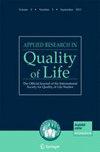While the cultivation of hope has been shown to promote different positive outcomes, few studies have examined how positive and negative affect may affect the receptivity of hope cultivation. The present study examined how initial affective states influence the receptivity of hope cultivation on the promotion of hope and the effectiveness of a self-administered three-week online hope intervention. A total of 60 participants were recruited and they were randomly assigned to either the hope condition or the control condition. Participants in the hope condition received a link that directed them to read the hope relevant materials for four consecutive days per week for three weeks via WhatsApp. Participants in the control condition did not receive any intervention. All participants were asked to complete a pre- and post-assessment on their levels of hope, well-being, and optimism. In addition, they were also asked to complete an assessment of their hope levels in week 1 and week 2. Results showed that the hope cultivation was effective in promoting levels of hope and optimism at post-assessment. While baseline negative affect showed non-significant moderating effect, baseline positive effect moderated the effect of hope intervention on changes of hope in week 2 and post-assessment. In particular, only people with lower levels of positive affect were receptive to the intervention by showing improvement in hope levels. Findings provided evidence in supporting the self-administered online intervention in the promotion of hope.


